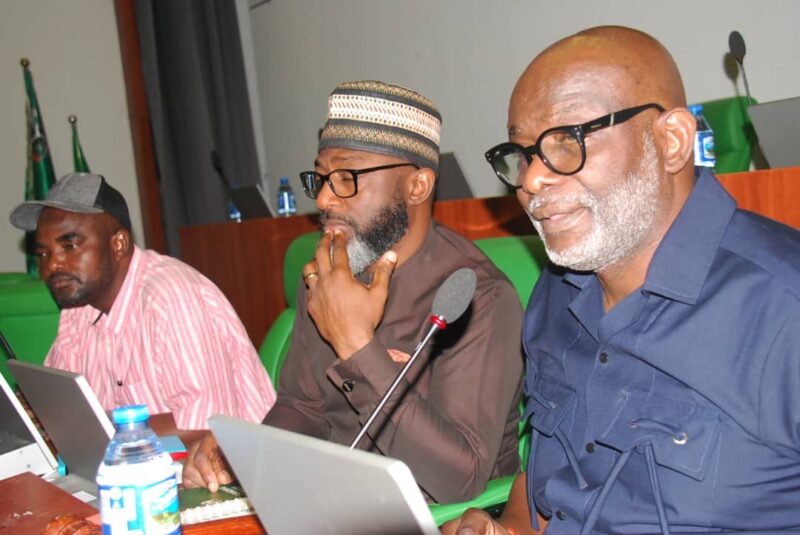Olufemi Bamisile, the Chairperson of the House of Representatives Ad-hoc Committee investigating the economic, regulatory, and security implications of cryptocurrency adoption and POS operations, has warned that Nigeria faces a rapidly escalating crisis driven by fraud, weak regulation and the infiltration of unlicensed crypto-related activities in the digital-payment sector.
Speaking at the committee’s resumed investigative hearing with fintech leaders, POS operators and representatives of regulatory and security agencies, Mr Bamisile said recent engagements revealed deep gaps within the country’s fast-expanding digital-finance ecosystem.
He said the committee had received several reports pointing to the proliferation of unprofiled agents, cloned payment terminals, anonymous transactions and poor Know-Your-Customer (KYC) compliance, vulnerabilities that expose citizens to financial loss, cybercrime and security breaches.
“We are concerned about the growing rise in fraud associated with POS operations,” he said. “Unprofiled agents, cloned terminals and weak KYC practices continue to expose citizens to preventable dangers.”
Mr Bamisile also expressed concern over a growing practice in which some POS operators allegedly offer cryptocurrency and other digital-asset services without authorisation. Such activities, he noted, raise red flags around anti-money laundering, terrorism financing, data integrity and the misuse of platforms originally designed for simple payment services.
According to him, the committee has also been alerted to the registration of fictitious companies at the Corporate Affairs Commission (CAC), with some allegedly using the NIN and BVN of unsuspecting citizens to open accounts and launder funds through unverified POS channels.
“This highlights weak verification mechanisms and underscores the urgent need for a more coordinated oversight framework,” he said.
Another area the committee intends to probe is the storage of sensitive customer data on foreign servers by some fintech companies.
Mr Bamisile warned that offshore data storage undermines national security efforts, as it prevents regulators and security agencies from conducting quick audits, tracing suspicious transactions or enforcing compliance.
“This has direct national-security implications, especially in a sector connected to terrorism financing risks and cyber-enabled crimes,” he said.
Despite the gravity of the issues raised, Mr Bamisile told operators that the committee’s engagement would not be confrontational.
He acknowledged that the sector itself is struggling under fragmented regulation, overlapping agency mandates, policy inconsistencies and excessive compliance demands.
“Our mandate is clear: to recommend legislation that will deliver a harmonised regulatory framework, stronger security safeguards, improved consumer protection, and an environment where innovation and investment can flourish responsibly,” he said.
The National President of the Association of Digital Payment and POS Operators of Nigeria (ADPPON), Paul Okafor, told the lawmakers that the POS ecosystem has reached a “critical emergency point,” with fraud escalating to levels that now threaten national security.
Mr Okafor said the industry’s explosive growth from 50,000 operators in 2017 to more than 2.3 million today has outpaced regulatory capacity, which he estimated has increased by “less than 10 per cent.”
“This imbalance is what has produced the crisis we are facing today,” he said. “The regulators, especially the CBN, are not incompetent; they are overwhelmed by the sheer speed and scale of growth.”
Citing data from the Nigeria Inter-Bank Settlement System (NIBSS), Mr Okafor said financial-channel fraud, including POS and digital-payment platforms, led to losses of N17.67bn in 2023, affecting more than 80,000 customers. Losses surged to N52.26bn in 2024, a jump of N34.59bn in just one year.
Attempted fraud across financial channels rose by 338 per cent, while POS platforms alone accounted for 26.37 per cent of all recorded cases. FITC, another industry monitor, reported a 95 per cent spike in POS-related fraud in Q4 2024.
“More than 38,000 POS fraud cases were officially recorded in one year,” he said. “Unofficially, we estimate over 70,000 cases go unreported because victims simply give up.”
Mr Okafor added that criminals increasingly rely on POS agents as cash-out points for ransom payments and illicit funds.
“In some states, nearly 40 per cent of kidnap-ransom payments pass through informal POS cash-out channels. This is no longer a fintech issue; it is a national security threat,” he said.
He urged the Committee to compel the Central Bank of Nigeria (CBN) to introduce sweeping reforms to protect the system, such as mandatory Nigeria Police Force–NCCC Cybercrime Clearance Certificate (CCC) for all POS operators; compulsory CAC registration for all POS businesses to ensure traceability and mandatory membership of recognised trade associations to enforce discipline, training, and self-regulation.
Mr Okafor said these measures align with global best practices. He noted that India, Kenya, Brazil, South Africa, and the United Kingdom impose strict oversight, including police vetting, business registration, and continuous recertification, to protect their payment systems.
READ ALSO: NASS Roundup: Age-reduction bill, police pensions crisis, illegal mining probe, other stories from House of Reps
“In Brazil, agent fraud dropped by more than 60 per cent after mandatory police vetting. India, with over five million agents, maintains low fraud levels because verification is non-negotiable,” he said. “No nation leaves its financial system open to millions of operators or allows foreign domination without strict controls. Nigeria must not be the exception.”
He warned that the stakes are extremely high, given that POS services now reach households, markets, local governments and businesses nationwide.
“You are the custodians of Nigeria’s financial future,” he told the lawmakers. “If this committee acts decisively, Nigeria will be safer. If it hesitates, criminals will continue to win.”












